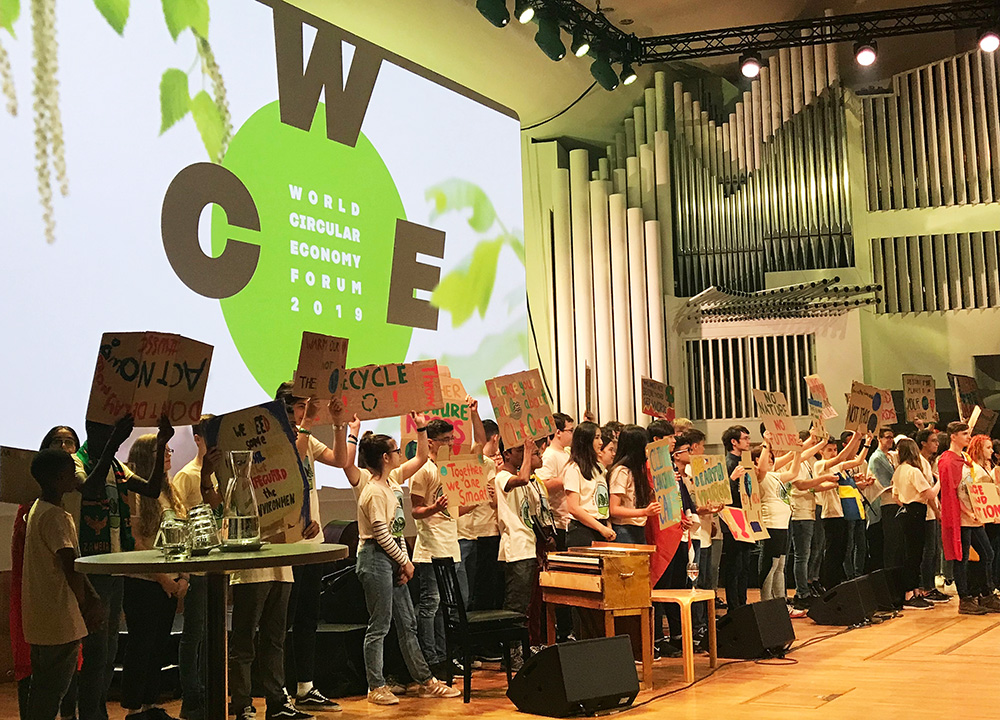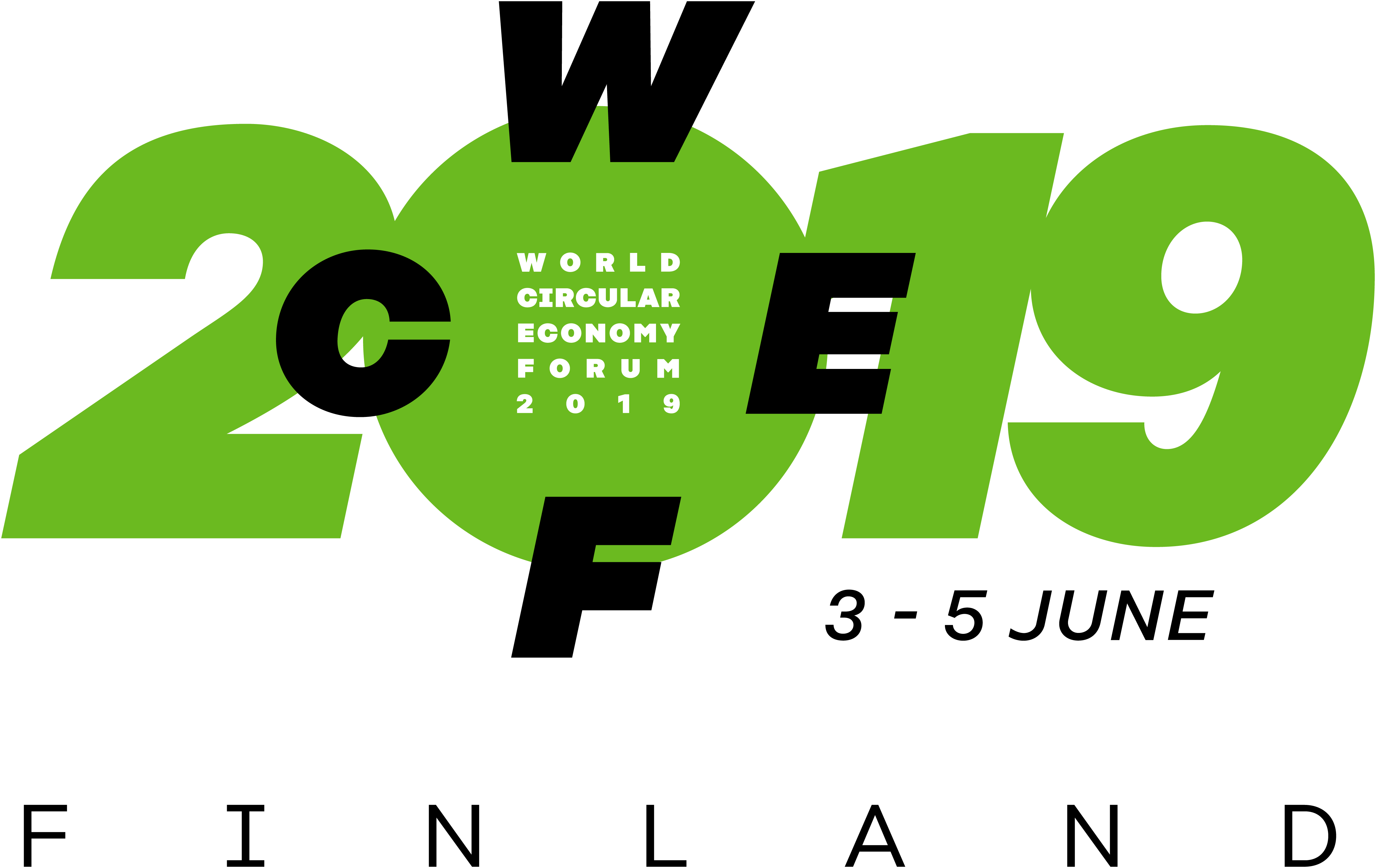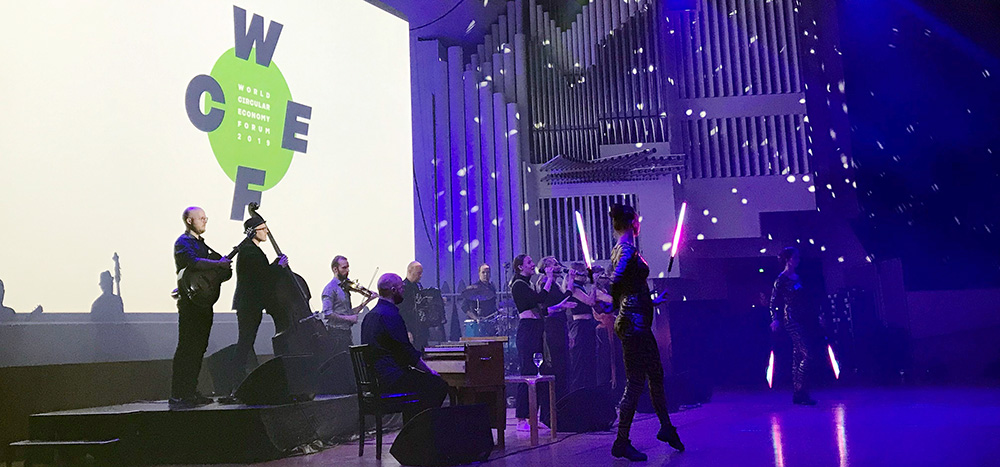Summary
Highlights for Monday, 3 June 2019
 The 2019 World Circular Economy Forum (WCEF2019) opened today in Helsinki, Finland, as a global initiative of Finland and the Finnish Innovation Fund (Sitra).Following a live welcome performance on the theme “wind, water, earth and fire,” moderators Peter Woodward, Quest Associates, and Veera Heinonen, Sitra, welcomed more than 2,000 participants from over 90 countries.President Mikko Kosonen, Sitra, underlined that, while the impacts of climate change and biodiversity loss are being increasingly felt, there are nonetheless positive examples of change, such as the Finnish roadmap to a circular economy by 2025. Youth representatives from over 70 countries marched on the stage with banners, calling audience members to tackle key causes of climate change and environmental degradation.On ways to scaling up global solutions, Stientje van Veldhoven, Minister for the Environment, the Netherlands, drew attention to population growth and the “enormous” pressure on natural resources, identifying governments’ public procurement spending as a good opportunity for driving the circular economy. Torbjörn Lööf, CEO, Inter IKEA Group, announced his company’s commitment to use only renewables and recyclables by 2030.Four parallel sessions took place in the afternoon to discuss: acceleration of business innovations; circular economy in cities; governance and roadmaps; and the circular economy in Africa.The Forum closed its first day of deliberations with a plenary session on “Building an Enabling Environment for Circular Business.” Key takeaways include:
The 2019 World Circular Economy Forum (WCEF2019) opened today in Helsinki, Finland, as a global initiative of Finland and the Finnish Innovation Fund (Sitra).Following a live welcome performance on the theme “wind, water, earth and fire,” moderators Peter Woodward, Quest Associates, and Veera Heinonen, Sitra, welcomed more than 2,000 participants from over 90 countries.President Mikko Kosonen, Sitra, underlined that, while the impacts of climate change and biodiversity loss are being increasingly felt, there are nonetheless positive examples of change, such as the Finnish roadmap to a circular economy by 2025. Youth representatives from over 70 countries marched on the stage with banners, calling audience members to tackle key causes of climate change and environmental degradation.On ways to scaling up global solutions, Stientje van Veldhoven, Minister for the Environment, the Netherlands, drew attention to population growth and the “enormous” pressure on natural resources, identifying governments’ public procurement spending as a good opportunity for driving the circular economy. Torbjörn Lööf, CEO, Inter IKEA Group, announced his company’s commitment to use only renewables and recyclables by 2030.Four parallel sessions took place in the afternoon to discuss: acceleration of business innovations; circular economy in cities; governance and roadmaps; and the circular economy in Africa.The Forum closed its first day of deliberations with a plenary session on “Building an Enabling Environment for Circular Business.” Key takeaways include:
IISD Reporting Services, through its ENB+ Meeting Coverage, provided daily web updates from WCEF2019. In addition, IISD Reporting Services has published a summary report from the meeting, which is available in HTML and PDF.
